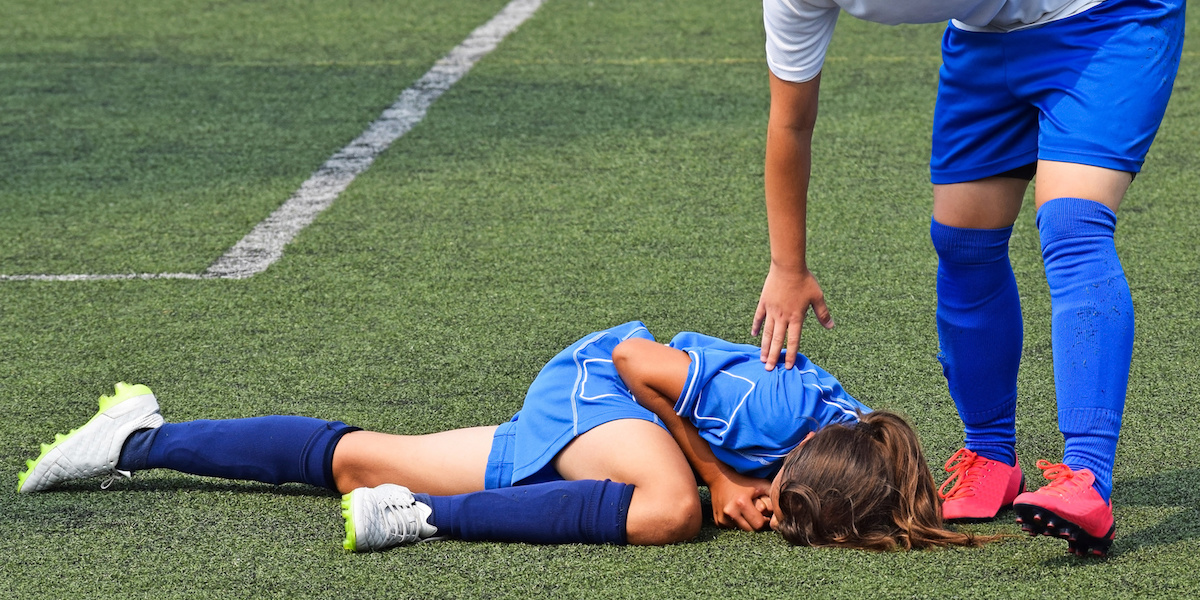
The following is excerpted from an online article posted by HealthDay.
Fewer high school athletes are getting hurt playing sports, but those who do are more likely to suffer severe injuries that require surgery or a timeout from their chosen sport, new research shows.
Which teens are most at risk? Those who participate in football, girls’ soccer and boys’ wrestling, the study authors found. Knee and ankle sprains and strains, along with head injuries such as concussions, were the most common injuries seen.
Exactly why injuries are becoming more severe isn’t fully understood, but having kids specialize in sports too early may play a role. That can lead to an increase in overuse injuries, overtraining and burnout, said study co-author Jordan Pizzarro, a medical student at George Washington University School of Medicine and Health Sciences, in Washington, D.C.
For the study, the researchers tapped into 2015 to 2019 injury data from 100 high schools. These schools have athletic trainers who report injuries for five boys’ and four girls’ sports.
Overall, there were 15,531 injuries that occurred during 6.8 million athletic exposures. (An athletic exposure is defined as one athlete participating in one practice or competition during which an injury could potentially occur.) This equals an overall rate of nearly 2.3 injuries per 1,000 athletic exposures, which can be extrapolated to 5.2 million sports-related injuries among high schoolers nationally.
Most injuries took place during games. Overall, the injury rate was higher in boys’ sports compared to girls’ sports, and 3.5% of all injuries were fractures, and these mainly occurred in boys’ baseball, basketball and football. Overall, just over 6% of injuries — most often from wrestling, girls’ basketball and boys’ baseball — required surgery.
In total, 39% of sports injuries resulted in athletes taking less than one week off from their sport, while 34% of injuries required taking up to three weeks off to heal. Seven percent of injuries required athletes to take more than three weeks off to heal, and nearly 21% of injuries led to medical disqualification for the season or career.
Still, the new data isn’t a reason for kids to stop playing sports.
“Sports build endurance and stamina and help with growth and maturity,” Pizzarro said. Instead, parents should talk to the school or coach about pre-season training programs that may help stave off injuries among young athletes.
The new research was scheduled for presentation at the American Academy of Orthopaedic Surgeons (AAOS) annual meeting, held in Las Vegas from March 7 to 11. Research presented at medical conferences should be considered preliminary until published in a peer-reviewed journal.
Source: HealthDay
https://consumer.healthday.com/sports-injuries-2659479745.html

 Nicotine Pouch Use Rising Among Teens, Public Health Expert Sounds Alarm
Nicotine Pouch Use Rising Among Teens, Public Health Expert Sounds Alarm  Synthetic Storm: What’s Really in Your Teen’s Vape — and Why Scientists Are Alarmed
Synthetic Storm: What’s Really in Your Teen’s Vape — and Why Scientists Are Alarmed  Teen Drivers Spend a Fifth of the Time Looking at Their Smartphone
Teen Drivers Spend a Fifth of the Time Looking at Their Smartphone